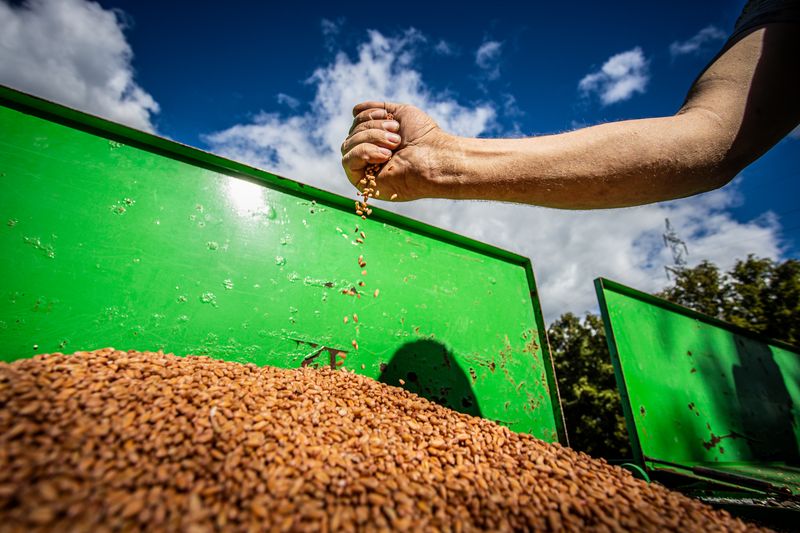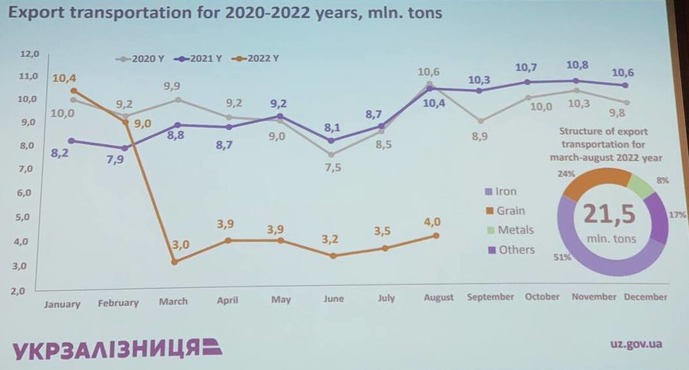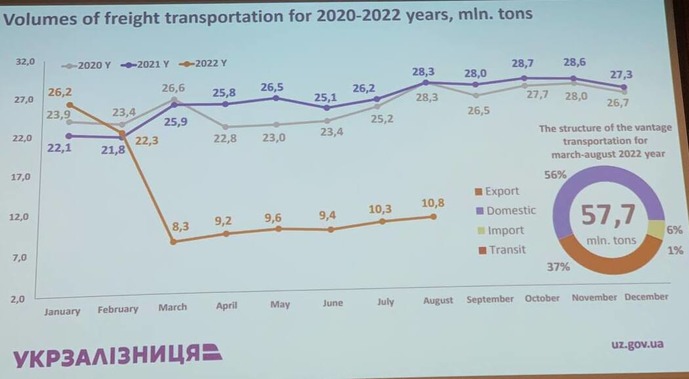35% of grain cargoes are exported through Poland – Ukrzaliznytsia

In March-August, about 5 million tons of grain were exported through land crossings. In the dynamics of cargo formation, Polish border crossings receive 35% of all grain cargoes. Also, a large share goes through Romania.
This was announced by the Commercial and Logistics Director, Ukrzaliznytsia Tymofiy Murakhovskyi during the Agro&Food Security Forum, which was held in Warsaw under the auspices of the “Association of Bean Producers and Consumers of Ukraine” and the “UkrAgroConsult” agency.
“After the beginning of Russia’s military aggression, the total volume of transportation of all types of cargo by Ukrzaliznytsia fell four times. The structure of export cargo was about 37%. Before that, grain products were mostly exported through the Black Sea ports, and land crossings were rarely used as points of transfer of goods to the EU,” says Tymofiy Murakhovskyi.
According to him, with the beginning of the war, everything changed, because the ports were blocked, and all cargo went to land crossings.
“We saw that the European market, which had previously been balanced to work with its internal cargoes, was not ready to accept the volume that began to arrive from Ukraine. When the ports resumed operation, most of our shippers refocused on them again, since the delivery distance is shorter and the speed is better,” Timofii Murakhovsky notes.
He adds that despite the operation of the Black Sea ports, the flows going to the Polish ports (Gdansk and Gdynia) will be maintained. In order to improve export flows, Ukrzaliznytsia is working to restore the infrastructure there.
“There is a certain problem with the infrastructure, but we, as well as our Polish partners, are making a lot of efforts to solve it. We can say that the queue, which was in the first months of the war for 90 days, has now decreased significantly.
But there remains a problem with the regulatory factors of cargo acceptance at the borders. In order to solve it, we need to create a joint reception point, which will allow speeding up the reception of trains at border crossings,” says Tymofiy Murakhovskyi.
Read also
Wheat in Southern Brazil Impacted by Dry Weather and Frosts
Oilseed Industry. Leaders and Strategies in the Times of a Great Change
Black Sea & Danube Region: Oilseed and Vegoil Markets Within Ongoing Transfor...
Serbia. The drought will cause extremely high losses for farmers this year
2023/24 Safrinha Corn in Brazil 91% Harvested
Write to us
Our manager will contact you soon





